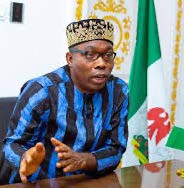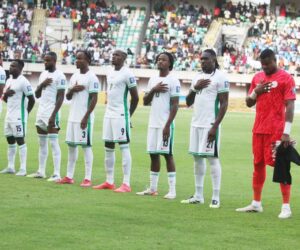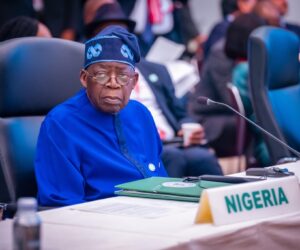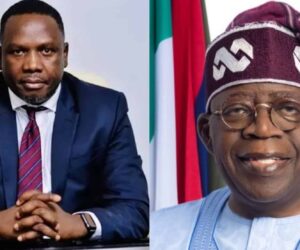1
The 2023 presidential candidate of the Social Democratic Party (SDP), Prince Adewole Adebayo, has attributed Nigeria’s worsening infrastructure problems to the sale of public assets by successive governments since 1999.
Adebayo faulted the nation’s privatization drive, describing it as a misdirected policy that has crippled essential sectors of the economy and undermined national development.
According to him, rather than selling government-owned enterprises outrightly, successive administrations should have liberalized the sectors to encourage private participation while retaining public control of strategic institutions.
He particularly blamed the administration of former President Olusegun Obasanjo (1999–2007) for spearheading the sale of major public assets such as the National Electric Power Authority (NEPA), Nigerian Telecommunications Limited (NITEL), National Insurance Corporation of Nigeria (NICON), and Nigerian Hotels Limited, among others.
“Part of the reason we are facing massive infrastructure collapse today is the reckless sale of public assets between 1999 and now,” Adebayo said. “Privatizing government enterprises was wrong. What should have been done was to privatize the sector, not the enterprise.”
He lamented that the consequences of those policies are now evident in widespread unemployment, poor savings culture, skill deficits, and decaying public infrastructure.
“In those days, if you finished school, you could join NEPA, and they would train you. Many of Nigeria’s finest engineers came from NEPA. We had a structure where young people could work and learn. But we destroyed that by selling off key public assets,” he noted.
Adebayo criticized the current dependence on foreign contractors for even minor projects, saying that the neglect of the public works department has worsened Nigeria’s infrastructure woes.
“If you watch any state government launching a 10-kilometre road, you’ll see a foreign contractor standing by. Even the basic works our public works departments could handle have been outsourced. I have more equipment in my compound than the works department in Akure, Ondo State,” he lamented.
On the power and telecom sectors, Adebayo maintained that the much-touted privatization has failed to deliver efficiency. He said that despite the sale of NITEL, most telecom operators still rely on its old infrastructure for connectivity.
“We still have telecommunications problems because most carriers depend on NITEL’s exchange. They can’t invest in backbone infrastructure because the private sector avoids such costly investments,” he said.
Similarly, he faulted the privatization of the power sector, noting that many consumers now have to buy their own transformers and equipment for electricity supply.
“People are generating power, but many of the so-called investors depend on the public to fund essential components. That’s not how privatization should work,” he argued.
Reiterating that privatizing government enterprises was a grave policy error, Adebayo said the right approach should have been to liberalize the sectors while retaining ownership and oversight.
“What should be privatized is the industry—the sector—not the enterprise itself. Selling government enterprises is wrong. What we need is to open up the sectors to fair competition,” he emphasized.
Adebayo, however, expressed optimism that his party, the SDP, has a more sustainable plan for national development. “Our idea is to reconstitute and raise a new generation of Nigerians who will rebuild and manage these enterprises, transforming them into engines of industrial growth,” he said.








